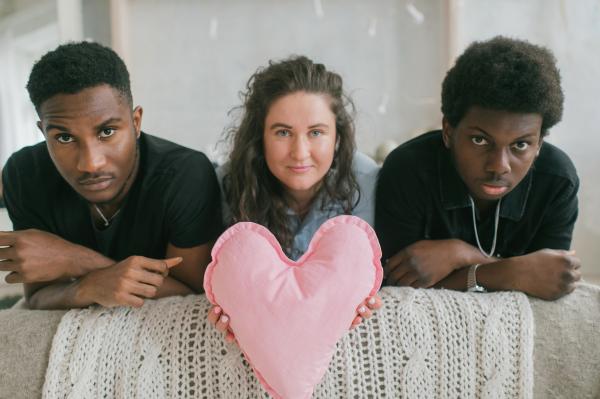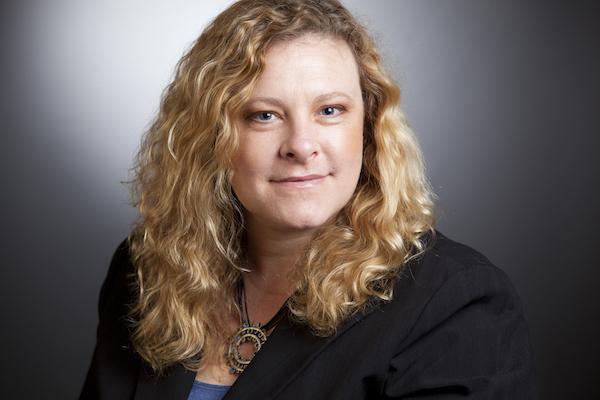Solo Polyamory, Singleish, Single & Poly


Solo polyamory is a fluid category that covers a range of relationships, from the youthful “free agent” or recent divorcee who might want to “settle down” someday but for now wants to play the field with casual, brief, no-strings-attached connections, to the seasoned “solo poly” who has deeply committed, intimate, and lasting relationships with one or more people. Some solo polys have relationships that they consider emotionally primary, but not primary in a logistical, rank, or rules-based sense, and others don’t want the kinds of expectations and limitations that come with a primary romantic/sexual relationship. Solo polys can love deeply; being alone can mean that solo polys are deeply in touch with themselves.
Importance of Autonomy
In many cases, solo polys intend to remain “singleish” indefinitely because they are strongly motivated by autonomy, value their freedom, and identify primarily as individuals rather than as parts of a multi-person unity. For others, circumstances (such as ending a primary relationship) converge so that a solo poly person is not in any romantic relationship at the moment, and yet maintains their polyamorous identity (much like a single lesbian might still consider herself a lesbian even if she is not currently in a romantic/sexual relationship).
While personal autonomy is often of supreme importance for solo polyamorists, it does not mean that they are always emotionally aloof or callous to the ways in which their choices impact others. Solo polys routinely consult with their partners, frequently considering their partners’ needs and feelings when making important decisions. Ultimately, however, the solo poly generally assumes full personal responsibility without asking others’ permission. Communication is crucial in poly relationships, and solo polys use it to understand and care for their partners, too.
Self As Primary
Some solo polys say that they are their own primaries, either because they find autonomy compelling or they are repelled by the primary-partnership relationship model. Whether they are deeply involved in an activity or hobby, work very long hours, find their own internal experience to be particularly gripping, or that they are simply not “wired” for primary partnership, the allure of autonomy draws some solo polys to become their own primaries rather than establishing a primary partnership with someone else.
For other solo polys, the expectations associated with primary partnership can feel suffocating or leaden. Rather than a comforting embrace, these solo polys experience the expectations, demands, and configurations of primary partnerships as stifling constriction.
Non-Romantic Primary
It is common for some solo polys to establish primary relationships with people who are not romantic partners. The shifting vagaries of romantic love prove too whimsical a base for some people to establish a primary partnership. In these cases, solo polys have sexual and romantic relationships, but they do not organize their lives around their lovers. Instead, they invest themselves in other elements of family, including friends who have become chosen family members. For these folks, siblings, cousins, nieces/nephews, or best friends can prove to be far more reliable and lower maintenance life companions than would romantic partners.
One of the most culturally recognizable non-romantic primary relationships is a single parent who prioritizes the children over their sexual relationships. These parents organize their work, social, and romantic lives around what is best for their children, and the kids are the primary consideration when it comes to making big decisions. Solo poly or serial monogamous, single parents routinely prioritize their children over their sexual/romantic relationships.
Stigma and Solo Polyamory
Solo polyamorists often face misunderstanding and stigma both in society at large and within poly communities. In general monogamous society, popular social mores cast unmarried adults as immature or somehow defective, and marriage/monogamous partnership has become one of the few remaining hallmarks of “true adulthood.” In that context, people who choose to remain single, or who invest primarily in platonic relationships and de-emphasize sexuality, can face intense social pressure to find “the one,” or at least settle down with/for someone. Wanting to be single is not evidence of malfunction, but rather an interest in other things and comfort with being alone or interacting with others.
Some people in polyamorous communities dismiss solo polys who don’t have any primary partners as not “doing polyamory right.” In this, they echo the dominant cultural assumption that there is something wrong with people who don’t have/want at least one primary-style partner.
Couple Privilege
These stigmas generally boil down to the common social presumptions associated with “couple privilege.” With such intense social emphasis on coupling and living happily ever after, it is no surprise that couples often see themselves as a legitimate unit worthy of recognition. When this importance comes at the expense of others, it becomes couple privilege.
Couple privilege is the (often unconscious) idea that committed, emotionally, and sexually intimate relationships are fundamentally more important than other types of intimate relationships. In polyamorous relationships, couple privilege is the foundation of the common presumption that the couple’s relationship, or any primary-style relationship, should be protected at all cost and is the only relationship worthy of “saving” if things go wrong.
Couple privilege can spur some polys to create restrictive rules that primary partners attempt to impose upon non-primary partners in order to “protect” the primary relationship. This frames non-primary partners like solo polys and/or secondary partners as potentially threatening interlopers — something that is generally not conducive to the health of any relationship. In these cases, the couple will often close ranks against what they see as an external threat to their sacrosanct coupledom, and the secondary partner or solo poly can be discounted, emotionally trampled, and silenced in the process.
As with other forms of social privilege, couple privilege in polyamory usually isn’t conscious or malicious, and very few people in established primary relationships intentionally wield their privilege. The assumption that the couple is the basic unit of society is so deeply embedded in our collective conscience that people are generally unaware of how it shapes their thoughts and directs their actions.
In general, privilege is not about consciously believing that you’re better than other people; it’s about assuming that you are normal — and that other people probably should want the same things you want (in this case, a primary partnership). Solo polys, though, often do not want what primary romantic partnership has to offer. Instead of trying to weasel their way into a primary role or hoping to undermine an established relationship, most solo polys simply want a full and equal voice in the conduct of their own relationships.








